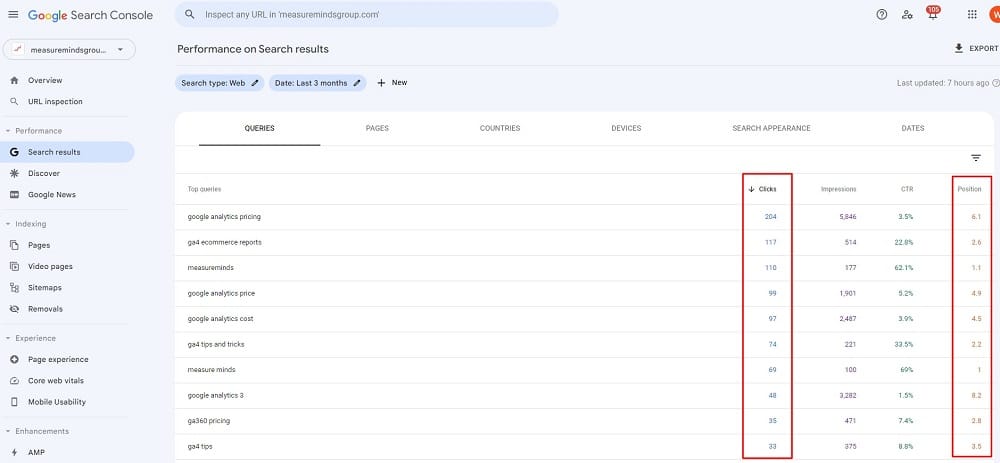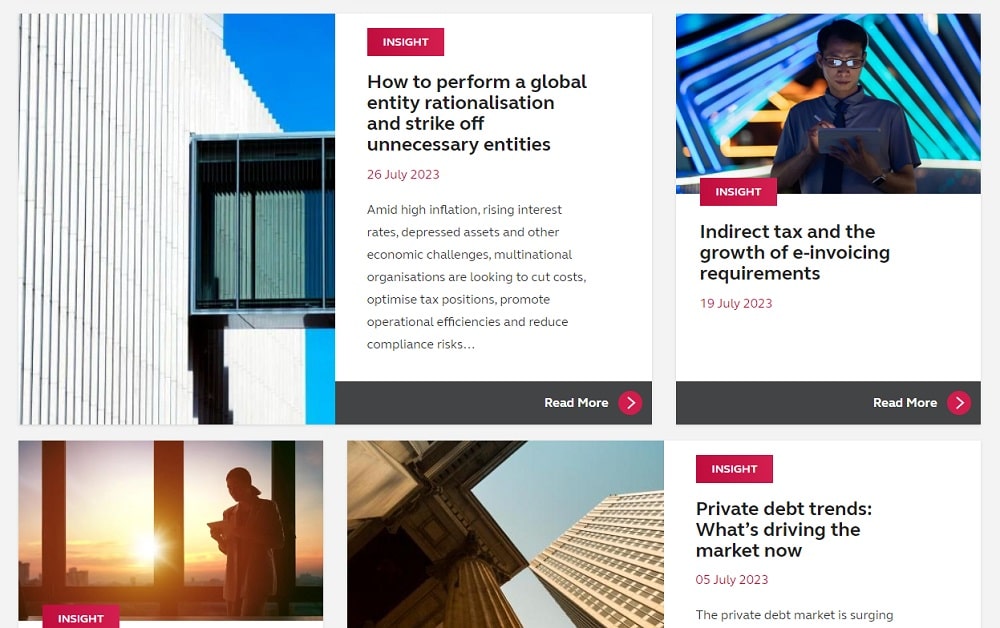
SEO for Financial Services Brands – Master the Strategy
What is financial services SEO?
Search Engine Optimization in finance is the alchemy that turns your digital presence into financial gold.
Traffic x Conversions = Sales and this is ultimately what SEO aims to deliver. It is achieved by improving user-experience, optimising a range of content and technical SEO factors, and building high authority backlinks.
The finance industry requires a unique approach to SEO compared to other industries for the following reasons:
- Banks, investment firms, insurance companies, and other financial service providers have to adhere to strict regulatory guidelines and compliance standards.
- These companies have large, complex sites that require content written by experts.
- Online finance platforms, looking to rank for highly competitive keywords and high street institutions, aiming to rank in multiple locations, both present their own specific SEO challenges.
- Google treats finance topics separately from most content, applying higher quality requirements for “Your Money or Your Life” (YMYL) subjects.
SEO for financial services provides the following benefits:
Increased traffic
As you improve your site content and technical SEO, you will rank higher in the search results for priority keywords. As pages move up the rankings, they generate more organic traffic.
Improved CTR and conversions
Writing better meta titles and descriptions increases the Click Through Rate (CTR) from Google. Improved content and user-experience increases your conversion rate – the percentage of site visitors who click ‘Contact Us’ or order one of your products or services, for example.
Greater brand visibility
Improved search engine presence means more prospects see your brand’s name in the search results. Backlinks from high-profile news sites and finance blogs further establish you as a leader in your field.
Overcoming SEO challenges in the finance sector
In the fintech and financial services sectors there is increasing competition. High street banks are competing with online banks and customers are drawn towards international finance solutions.
This has pushed the cost of paid ads up, particularly in the insurance industry, where you can pay as much as $100 for a single click. Financial institutions are looking for alternatives which deliver a higher ROI. Many of them have turned to SEO.
SEO in a highly regulated industry
Finance requires a high degree of regulation and compliance with both local and international standards. This in turn means a website’s content goes through multiple internal checks.
Adding SEO to the equation can prove complicated, as optimised elements are sometimes overridden later in the process. At MeasureMinds, we integrate SEO tools directly into Google Docs, so that writers and managers alike can both judge the impact any changes they make will have on SEO as edits are completed.

GDPR compliance has also become increasingly important. Financial institutions and other businesses face fines of up to €20m or 4% of annual global turnover, whichever is higher, for non-compliance.
Limited internal resources
Whether through budget or time constraints, many financial services institutions have limited resources to implement SEO best practices. At the same time, they provide multiple products and services and typically have large, complex websites.
To work around these constraints, prioritise your SEO campaign in the following ways:
- Identify which pages give the highest conversions.
- Allocate an expected profitability for different conversions to accurately judge the ROI.
- Complete keyword research to identify keywords with high traffic for each page.
- Complete an SEO audit and identify which aspects of financial SEO will provide the maximum benefit.
- Balance your SEO between specific pages and site-wide elements. This might be in the form of technical SEO to improve page speed, content SEO to improve UX, or editing default Metatags and Headings to optimise multiple pages simultaneously.
Setting up Google Search Console is a must. It’s the best tool out there for analysing the existing traffic coming to your site. Best of all, it’s free. From this, you can identify the coveted ‘low-hanging fruit’… Keywords where an increase of just a few positions will return exponentially more traffic.

Experts needed for content creation
Google contracts roughly 16,000 Search Quality Raters who check websites against their Search Quality Evaluator Guidelines. The Quality Raters rank sites on their Experience, Expertise, Authoritativeness and Trustworthiness (E-E-A-T). Meeting each of these guidelines boosts your ranking and others’ perception of your business.
Finance and health sites belong in a special category Google calls, “Your Money or Your Life”. For these sites, having accurate, expert information, is essential to rank well.
To create optimised, expertly written content, you can either:
- Recruit experienced finance writers and train them in SEO.
- Have your finance writers and SEO agency work together.
- Outsource finance copywriting to an experienced SEO content strategy agency.
The above solutions all ensure content meets Google’s and your customers’ high expectations for financial content, while also ensuring it is fully optimised.
Implementing an SEO Strategy for Financial Services
1. Audit Your Content and Technical SEO
Start by taking stock of the quality of your content and technical SEO. The best way to do this is with an enterprise SEO audit.
As well as covering all the essentials, for financial services, verify the following in your SEO audit:
- You have set up Google Analytics 4 and Google Search Console correctly. Without accurate data, it is impossible to identify the best digital marketing strategy.
- Content is trustworthy and you don’t use misleading Metatags as clickbait to entice visitors to your site.
- Your site is quick to load and mobile friendly. For online service providers, this is even more important.
For an SEO audit to be of maximum value, it should include an indication of how much benefit fixing each issue will provide, plus the resources required. Then you can plan out over the following months when you’ll execute the various tasks.
An example of the content creation we proposed over three months for a financial services client is shown below:

2. Banking SEO for multiple locations
In addition to matching priority keywords to individual landing pages, it’s also important to identify core keywords or keyword combinations that you want multiple pages to rank for variants of.
For high street bank SEO, or similar financial establishments with multiple branches, this would take the form of:
Service + Location
For example, if you’re a UK company and a core keyword is “house insurance”, you will want to rank high for “house insurance in London”, “Bristol house insurance,” etc.
Review dynamically generated pages and default settings targeting local terms. Ask yourself:
- Are meta titles and descriptions well-written?
- Do they contain your core keyword and the name of the city or region?
- Do they contain any fluff or are keywords shown in an illogical order?
- Does each page have a relevant H1 heading?
- Have you used the core keyword at least once in the default sub-heading (H2-H6) structure?
- If your site includes standardised text, have you used your core keywords once or twice in it?
- Do pages cross-link to other related pages? Use variety in the anchor text and include some internal links where the anchor text exactly matches your keyword.
- Do a good amount of your web pages have URLs that include your core keywords?
By prioritising default configurations, you can optimise multiple pages simultaneously. Note, Google punishes sites where pages are created solely for SEO. It’s therefore important that your local pages have unique content. This might be in the form of the address of your branches, or category pages listing different results.
If you are a financial advisor and are only targeting a single location, research local SEO. In particular, search for relevant keywords in Google and submit your site to any directories or listicles you find using the same name, address and telephone number. If a forum or article appears in the top twenty results, add a well-thought-out comment to it linking back to your site if possible.
See our guide on Local SEO for multiple locations.
3. Meet your client’s expectations
According to Search Engine Journal:
“Today, financial services customers expect self-serve options at every stage of their journey, from discovery and comparing their options through consultation, transaction, and service.”
The modern customer doesn’t need the reassurance of a face-to-face meeting or a fancy brochure to order financial services. Individuals prefer to interact entirely through the internet and the more processes you can automate, the better your UX, conversions and search engine ranking will be.
When developing self-serve options, take SEO into consideration from the outset. Ensure each product has one or more clearly defined and well-optimised landing pages. Put as much information as possible in a format Google can index and place it on the same domain as the rest of your content.
4. Fill your blog with helpful content
Blogs are an often-overlooked element of content marketing strategy yet are a great way to improve not only SEO performance but also enhance branding and sales.
In December 2022 Google released the Helpful Content algorithm update. Since then, sites with better helpful content receive a site-wide boost to their ranking, including to their commercial pages.
When writing a blog, first identify the user-intent of organic searches. Create clusters of keywords with informative intent for your blog pages. For your service pages, target keywords with commercial intent.
In the financial services industry, blogs serve the following purposes:
- Reach potential customers at an early stage of the sales pipeline.
- Create a warm fuzzy feeling by providing truly helpful content, then direct visitors to commercial pages using internal links.
- Show your financial services company is experienced, knowledgeable, and wants to help.
- Rank for informative keywords in the search engine results pages.

5. Ensure Your Site is Fast and Mobile Friendly
So far, we’ve talked a lot about content. That’s because this is what distinguishes SEO for financial services from other SEO campaigns. However, technical SEO, including a fast and mobile-friendly site is just as important.
Google will be updating how page speed affects SEO in March 2024. As they’ve provided substantial advance notice, it’s likely to be a significant update. The new metric is called INP – Interaction to Next Paint and is already available to view for your site in Search Console.
As mobile users commonly bank online and use other digital financial services, ensuring your site is mobile-friendly is also essential.
6. Obtain backlinks from expert blogs and news platforms
Building high authority backlinks boosts your website’s reputation and Google ranking. It’s therefore important to include link building services as part of your overall SEO strategy.
For finance websites, it’s paramount you focus on high-quality links. Some metrics to consider when outreaching to sites are:
- Domain authority – A scale of 1-100, the higher the better. It’s generally seen as how powerful your domain is, and therefore its ability to rank site-wide.
- Trust flow – As above. Is a measure of how many authoritative platforms link to a particular site.
- Topical trust flow – Indicates how relevant a site is to different industries.
- Organic traffic – Aim for sites with plenty of traffic and review country-specific traffic. A UK financial services company will get more of a boost from UK domains than from a site about American finance, for example.
Google’s Search Quality Guidelines state that for health and financial sites:
“The reputation of a website should be judged by what experts in the field have to say.
Recommendations from expert sources, such as professional societies, are strong evidence of a positive reputation.”
Joining professional societies is therefore particularly likely to boost your Google ranking, as are positive articles on expert-orientated blogs.
Identify which social media platforms your target audience uses. If you’re targeting students looking to open a bank account for the first time, TikTok is the ideal platform. If you’re targeting business owners looking for financial advice, orientate your strategy towards LinkedIn and Facebook.
Craft content with this target audience in mind. Social media campaigns often fail because they attempt to reach everyone and instead reach no one.
Use social analytics to measure the success of your campaigns, identify posts with the most viral content and learn more about your audience. By using this as a feedback loop, you can continually refine your social media strategy and generate better and better results.
8. Use A/B Testing to Improve and Monitor Results
As with social media, monitoring the results of your SEO campaign tells you what’s working and what’s not.
Track substantial drops or increases in traffic after completing optimisation work. Also review traffic to your site as a whole after major Google algorithm updates. Refine your strategy based on the results.
To test your conversion rate optimisation (CRO), use A/B testing. With this method, a different version of your site is shown to half the visitors. Conversions are then measured, giving you a like-for-like comparison of two different layouts or content usage.
9. Block ChatGPT from accessing your research
Financial services websites share thought-leadership pieces, industry trends, white papers and more. AI bots scrape content from the web, then rehash it to answer questions. Other site owners using ChatGPT then adapt the answers to add to their own site.
To avoid your cutting-edge research becoming knowledge your competitors use, add the following code to your robots.txt file:
User-agent: GPTBot
Disallow: /
How MeasureMinds can help you as a finance SEO agency
MeasureMinds provide data-driven SEO solutions for financial services. We help you achieve your business goals by working with you to develop and execute a revenue-generating SEO strategy that is tailored to your specific needs.
Learn more about our SEO services or request a free SEO consultation.
- How to Blend GA4 & UA Data Using BigQuery & Looker Studio - 12/07/2024
- How to do a Google Analytics 4 Audit & Mistakes to Avoid - 10/07/2024
- How to Backup & Visualize GA3 Data for Free - 27/06/2024
Nice one… Very Helpful